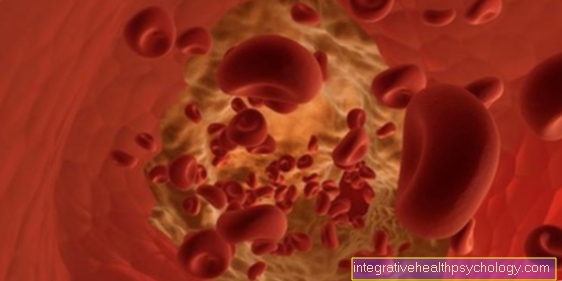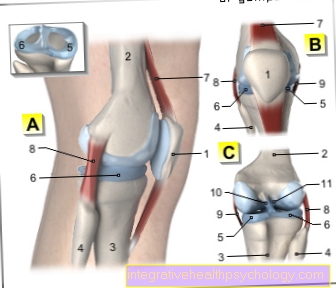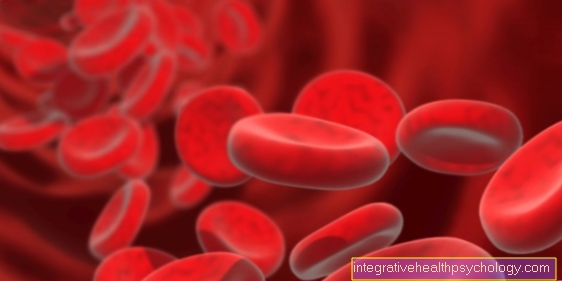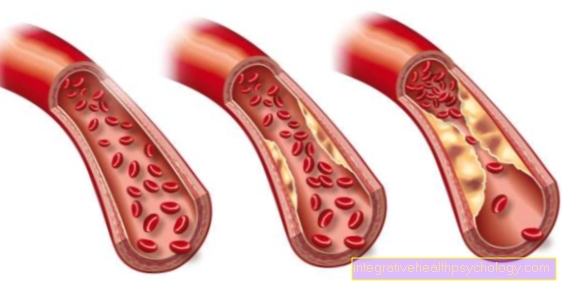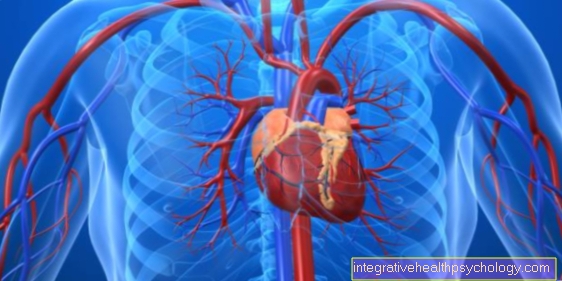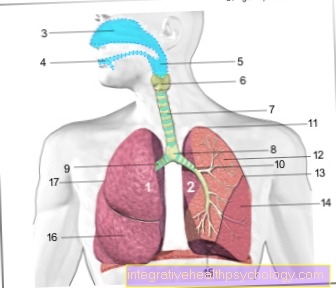Wholesome nutrition
definition
In the wholesome nutrition Food and drinks are carefully and consciously selected, carefully prepared and consumed with as little treatment as possible.
Calories and nutrients are not compulsorily calculated, but this nutritional forum can help Weight reduction be used.
The ten rules of wholesome nutrition
- Eat versatile
- Less fat and high-fat foods
- Plenty of vegetables, potatoes and fruit
- Less animal protein
- Little sweet
- Spicy but not salty
- Drink enough
- Small meals more often
- Prepare nutrient-friendly
- Preferences allowed
Versatile food
The more diverse and carefully put together the menu, the easier it is to avoid an inadequate supply of essential nutrients. There are no “healthy”, “unhealthy” or “forbidden” foods. It always depends on the amount, selection and combination of the individual components on.
It is favorable to eat vegetarian food with little meat and sausage, to be cautious about high-fat dairy products such as cheese and cream, as well as cooking fat. Instead, lots of vegetables, salads, potatoes, pasta, cereal dishes, fruit and wholemeal bread (cut slices thicker and cover them thinner) supplemented by low-fat dairy products and fish.
Read more on the subject at: vegetarianism
Less fat and high-fat foods

Visible fats are Spreadable fats like butter and margarine and Cooking fats for roasting, deep-frying, baking, salad dressings and visible fat in the form of fat rims on meat and ham.
Tips to reduce the absorption of visible fats:
- Around two tablespoons of spreadable and cooking fat per day are enough.
- Use spreadable fat sparingly, omit it or replace it with mustard, tomato paste, low-fat cream cheese. Margarine delivers just as much Calories like butter. Half-fat margarine and half-fat butter are reduced in fat and calories.
Half of them consist of water, emulsifiers and preservatives. - Prefer fat-saving cooking methods such as boiling, grilling, steaming, cooking in foil, clay pots or coated pans.
- Breading absorbs a lot of fat during cooking. Better to avoid breaded foods, remove the skin from poultry.
- A high-quality (cold-pressed) vegetable oil is recommended for salad dressings.
- Replace mayonnaise, cream and creme fraiche with yogurt or sour cream.
- Cut off visible fats on meat and ham.
Hidden fats are mainly found in meat, sausage, mayonnaise and ready-made salad dressings, ready meals, dairy products and cheese, baked goods and sweets, nuts, chips and chocolate. By purposefully purchasing low-fat alternatives, fat can usually be saved without any loss of taste.
Tips to reduce the intake of hidden fats:
- Cheeses up to 30% fat i. Tr. (approx. 15 g absolute fat) and enjoy at room temperature
- Choose sausage up to approx. 15 g fat per 100 g.
- Omit the spreadable fat from the fat-rich bread topping.
- Prefer milk and sour milk products up to 1.5%.
- Preferably choose low-fat meat, poultry and fish.
- Nuts and oil seeds contain a lot of but high quality fat. Enjoy in small amounts.
- Instead of chips and the like, nibble on low-fat pretzel sticks or, even better, crunchy pieces of vegetables.
- Ready meals and fast food usually contain large amounts of hidden fats. Better to cook yourself and thus save fat in a controlled manner.
More whole grains
whole grain products how
- Whole grain bread
- Brown rice
- Cereal dishes
- Whole wheat pasta and
- cereal
contain the cheap complex carbohydrates. They ensure long-lasting satiety and provide the fiber, which is important for digestion. Whole grain products naturally contain many Vitamins, bioactive substances, minerals and trace elements.
Plenty of vegetables, potatoes and fruit
This Food belong at the center of a calorie-conscious and healthy diet.
5 servings of vegetables, salad and fruit (Take five a day) should be included in the daily menu. Potatoes and legumes in low-fat preparation are also recommended foods. Pay attention to fresh, regional and seasonal availability when shopping. Prefer products from organic farming.
Less animal protein
Vegetable protein in legumes, potatoes, and grains is beneficial for a healthy diet.
Milk, low-fat dairy products and fish are also valuable sources of protein.
It is advisable to reduce the consumption of meat, sausage and eggs. The trend is towards a low-meat diet that gives priority to meatless meals and only includes meat twice a week.
When buying meat, pay attention to animal welfare and regional origin. Prefer eggs from free-range hens.
Little sweet
Sugar and sweets provide lots of so-called "empty calories". Except for calories, they do not contain any essential nutrients such as vitamins or minerals.
Spicy but not salty
The consumption of table salt should be reduced. Too much salt puts a strain on the body and can lead to the development of high blood pressure contribute. Prefer fresh herbs and various spices. If salt, then with iodine Use fortified table salt and always salt sparingly.
Drink enough
The body needs at least two liters of water a day. Consumption can increase significantly when it is very hot or when exercising.
When losing weight, it is very important to drink enough. The most suitable are water, mineral water, herbal tea or thin juice spritzers.
Lemonades, fruit nectars, iced tea and all sugared drinks are unsuitable. Coffee and black tea are luxury foods and should not play a role in the daily fluid balance.
Small meals more often
Five small meals spread over the day prevent performance slumps and cravings. Large meals put a strain on the digestive organs and make you tired. Even small snacks like an apple or natural yoghurt are enough to supply the body with sufficient energy.
Prepare nutrient-friendly
Too long storage, incorrect preparation (leave it in the water), too long boiling, rewarming, and the use of a lot of water destroys and leaches out important nutrients.
Always wash the vegetables whole, do not leave them in the water, cook briefly with a little water and fat.
It should still be crisp!
Refine the own taste with fresh herbs. Pay attention to freshness when shopping and store in the vegetable compartment of the refrigerator. Vegetables from the freezer are also recommended and wilted, overlaid vegetables from the supermarket are superior.
Preferences allowed
At the Lose weight it is important to eat what tastes good.
If you can't stand apples, you don't need to eat them now, but can continue to prefer your favorite fruit variety. There are no prohibited foods, only those whose consumption should be consciously restricted. So don't do without chocolate or other fatty and sweet favorite dishes altogether, but manage to eat less of them with pleasure and without a guilty conscience.
Maybe it is also possible to defuse beloved "calorie bombs" by using less sugar or fat in the preparation.





